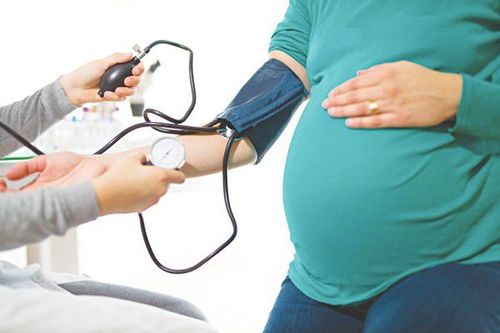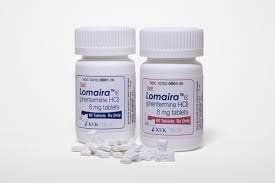This is an automatically translated article.
The article was professionally consulted by Doctor II Nguyen Quoc Viet - Department of Medical Examination & Internal Medicine - Vinmec Da Nang International HospitalHigh blood pressure during pregnancy is a disease that pregnant women need to pay special attention to because it can lead to preeclampsia and eclampsia - one of the dangerous obstetric complications for both mother and baby. Therefore, early detection and appropriate intervention are essential.
1. Hypertensive disorders during pregnancy
During pregnancy, women have physiological changes in the heart. Some organs such as breasts and uterus grow larger, proliferate blood vessels, so they need more blood to supply the fetus. Normally, blood pressure tends to drop by about 10-15%, but there are also cases of high blood pressure during pregnancy due to medical conditions or unknown causes.
Therefore, good monitoring of blood pressure during pregnancy is essential. Pregnant women should know their own blood pressure before becoming pregnant, and should regularly measure blood pressure from early pregnancy until delivery.
Hypertensive disorders are classified into 4 groups, reflecting differences in etiology as well as pregnancy complications:
Chronic hypertension: Having a history of high blood pressure prior to pregnancy; Gestational hypertension: There is only simple hypertension, occurring after the 20th week of pregnancy, blood pressure usually returns to normal after 6-8 weeks, no later than 10-12 weeks postpartum. Preeclampsia - eclampsia: Also appearing after 20 weeks, high blood pressure combined with edema and protein in the urine, if severe, convulsions will occur, even life-threatening for both mother and baby. Chronic hypertension coupled with preeclampsia ; Pregnant women how much blood pressure is high? Blood pressure is said to be elevated when diastolic pressure is >140 mmHg and/or systolic blood pressure is >90 mmHg, which is also a common threshold for treatment.
2. Chronic hypertension

Chronic hypertension is defined as high blood pressure:
Present before pregnancy; Occurs earlier than the 20th week of pregnancy; Blood pressure level of 140/90 mmHg or higher; Women with chronic hypertension should actively monitor closely throughout pregnancy because of the increased risk of complications related to pre-eclampsia graft, placental abruption, fetal growth retardation, preterm delivery, or stillbirth.
Because some antihypertensive drugs are often contraindicated or restricted in use during pregnancy, screening combined with prenatal counseling and management of chronic hypertension for pregnant women is essential.
3. Gestational hypertension
Gestational hypertension is diagnosed when:
Hypertension develops after the 20th week of pregnancy; There are no signs suggestive of preeclampsia; Blood pressure returns to normal within 3 months postpartum; If it progresses, it will reach ≥ 170/110 mmHg; High blood pressure that occurs early in pregnancy is often severe. Aggressive treatment of mild and moderate hypertension will be beneficial in preventing severe hypertension, as well as rarely affecting pregnancy complications. Women with high blood pressure during pregnancy should also:
Regularly monitor blood pressure readings; Watch for other signs of preeclampsia 1-2 times per week; Do some tests if needed, eg proteinuria; Pay attention to the risk of recurrence in the next pregnancy;
4. Preeclampsia - eclampsia

Approximately 25% of women with high blood pressure during pregnancy will be diagnosed with preeclampsia, even though there are no early signs. This condition occurs after the 20th week of pregnancy and ends within a few days or weeks after birth, with symptoms such as:
High blood pressure; Excessive swelling in the legs, hands and face; There is protein in the urine; Edema in preeclampsia is different from physiological edema in pregnancy, which will not go away after a night of rest. Pre-eclampsia can lead to an acute complication that is very dangerous for the life of the mother and fetus, eclampsia, with the following manifestations:
Having one or more convulsions continuously; Comatose; Headache, blurred vision, pain and altered consciousness; Seizures can occur before birth, during labor, or 48-72 hours after birth. Termination of pregnancy is a radical treatment for preeclampsia when the mother's health is too critical. The management of preeclampsia before 32 weeks of pregnancy should be performed in specialized hospitals by a team of experienced physicians.
In summary, gestational hypertension warns of many risks for both mother and fetus. Regular monitoring of blood pressure before and during pregnancy is the best prevention. If blood pressure is not controlled during pregnancy, it can lead to complications for the mother, as well as malnutrition in the baby or more dangerous, the baby must be born early. Families and pregnant women themselves should coordinate well with their doctors to receive stable interventions and treatment to ensure safe health during pregnancy.
Choose for yourself a reputable maternity clinic for the best pregnancy process. The Maternity Care Program at Vinmec International General Hospital is always appreciated for its outstanding quality in medical qualifications, complete equipment and supplies, and especially leading professional services, helping her Pregnant mothers have the most favorable and pleasant pregnancy.
Please dial HOTLINE for more information or register for an appointment HERE. Download MyVinmec app to make appointments faster and to manage your bookings easily.














